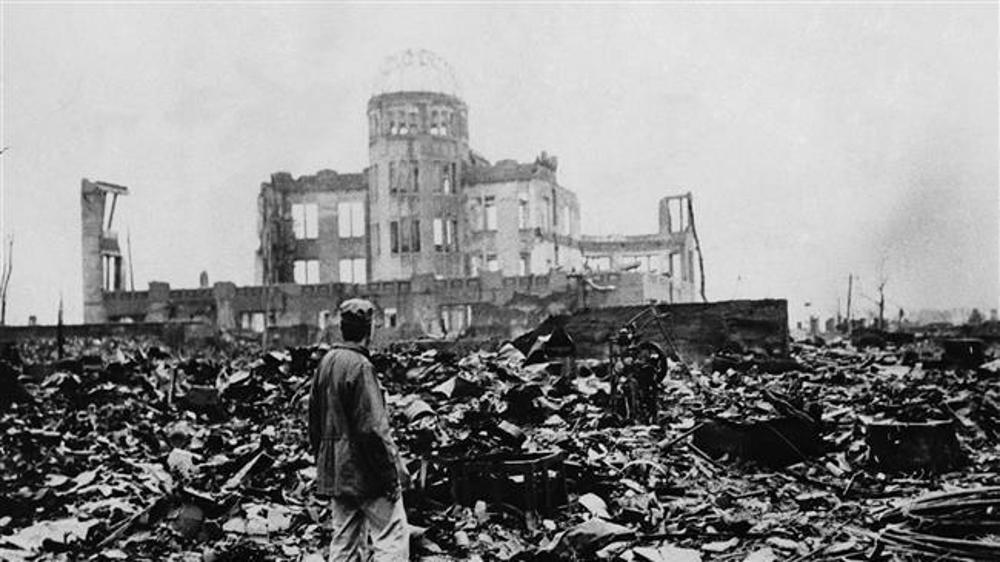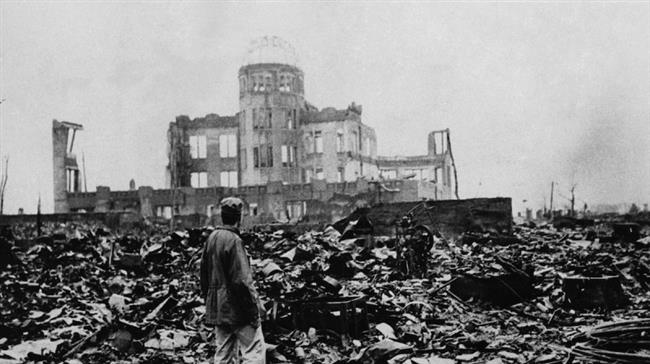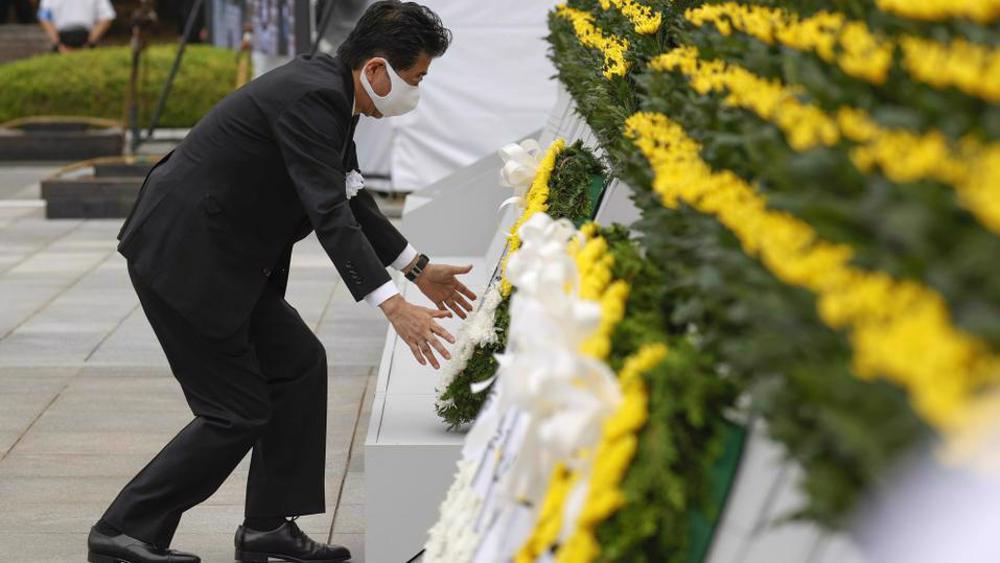Abe vows Japan won’t repeat ‘tragedy of war’ on WWII anniv.
Japanese Prime Minister Shinzo Abe has renewed Tokyo’s pledge not to repeat “the tragedy of war” during a ceremony making the 75th anniversary of his country’s surrender in World War II, but refused to offer an apology for “mistakes of the past.”
“Never to repeat the tragedy of war. We will continue to remain committed to this resolute pledge,” Abe, wearing a face mask, told the ceremony commemorating the war dead on Saturday.
The premier, however, refused to apologize for the sufferings of his country’s neighbors during the war, which lasted from 1939 to 1945, arguing that future generations should not have to keep apologizing for mistakes of the past.
Abe sent a ritual offering to Tokyo’s Yasukuni Shrine for war dead, but avoided a personal visit that would anger China and South Korea.
The shrine is seen by Beijing and Seoul as a symbol of Japan’s past military aggression.
South Korean President Moon Jae-in said in a speech marking the occasion that his government was always ready to discuss history disputes with Tokyo.
Abe has not gone to Yasukuni in person since a December 2013 visit.
Instead, four Japanese cabinet ministers paid their respects in person at Yasukuni on Saturday.
Shuichi Takatori, a member of Abe’s ruling Liberal Democratic Party, said he made the offering on behalf of the prime minister as party leader, delivering a message that Abe “paid his respects from the heart to the war dead and prayed for the rest and permanent peace of their souls.”
The South Korean Foreign Ministry, however, expressed “deep disappointment and concern” over the ministers’ visit and said Japan’s leaders must show their “deep remorse through action.”
Thousands of people also gathered at the shrine to pay their respects in queues that quickly became congested, despite the markers and signs seeking to maintain social distance due to the coronavirus pandemic.
The government-sponsored ceremony, however, was scaled back, with fewer than 600 people, including relatives of war dead, participating, down from more than 6,000 last year.
Seats were spaced out and a musical performance replaced the singing of the national anthem.

Naruhito, the grandson of Emperor Hirohito in whose name imperial troops fought the war, also attended the ceremony on Saturday, saying he hopes “that the ravages of war will never again be repeated.”
Naruhito, 60, ascended the throne last year after his father, Akihito, abdicated.
Towards the end of the war, on August 6, 1945, an American B-29 bomber Enola Gay dropped its atomic payload over the port city of Hiroshima at 8:15 a.m. local time, ultimately killing 140,000 people.
The bombing utterly destroyed almost everything within 10 square kilometers in the downtown area.
Many died immediately while others succumbed to their injuries or radiation-related illnesses weeks, months, and years later.
Three days later, a second nuclear attack on Nagasaki killed another 70,000 people. Japan surrendered on August 15, and brought the hostilities of World War II to an end. It was, however, a beginning to the nuclear age.
The US, which has never apologized for its most horrendous crime, has become Japan’s staunch military ally in the decades following the war.
The date is marked by Koreans as National Liberation Day. Koreans resent Japan for what they call colonization of the peninsula in 910-1945.
Relations between Japan and South Korea are strained by a dispute over compensation for Koreans forced to work in Japan’s wartime mines and factories.
China has also bitter memories of Japanese imperial troops’ invasion and occupation of parts of the country from 1931 to 1945.
A commentary by the official newspaper of China’s military, the People’s Liberation Army, wrote, “We must learn from history, let history be a warning for the future, and show that we are prepared to fight in the event of a war.”
CIA turns to Kurdish militants to destabilize Iran after war failures: Report
Iran won’t remain silent in face of aggression: Envoy
Iran sets three-day ceremony to bid farewell to late Ayatollah Khamenei
Tehran warns EU against ‘Nazi mindsets,’ slams German backing of Israeli-US aggression
Iran agreed to nuclear concessions in Geneva talks – and then US-Israel bombed
Witkoff undermined Iran talks by peddling lies to build case for military aggression: Report
Scrutiny mounts over Trump’s Iran war amid contradictory claims, soaring costs: Reports
No imminent threat, just Israeli agenda: US senators push back on war on Iran













 This makes it easy to access the Press TV website
This makes it easy to access the Press TV website